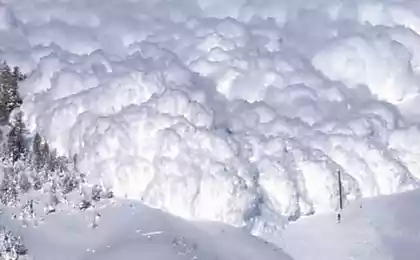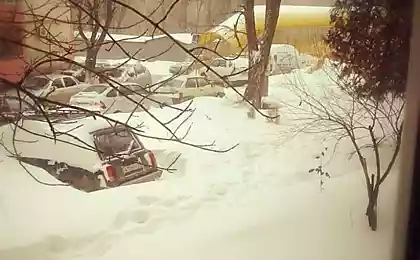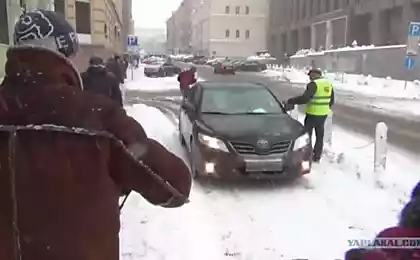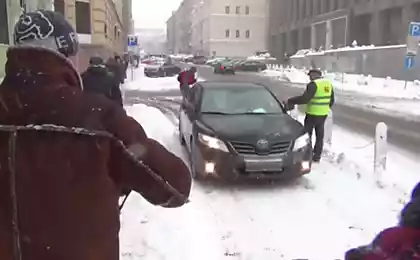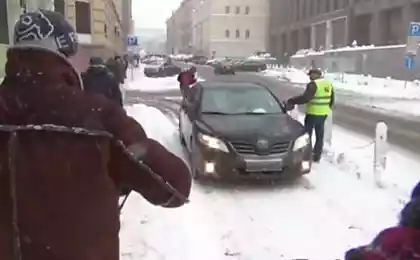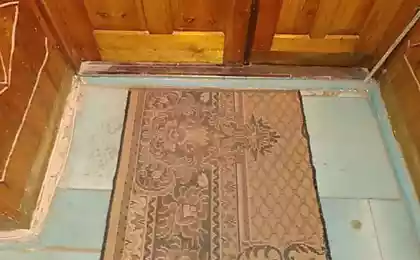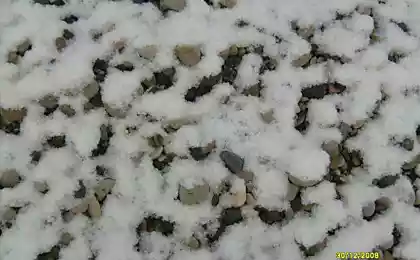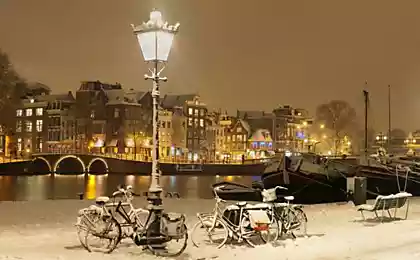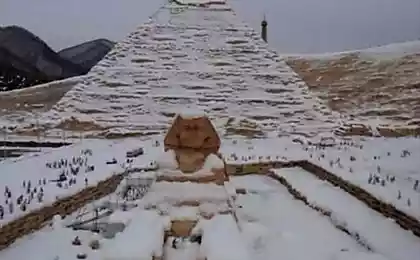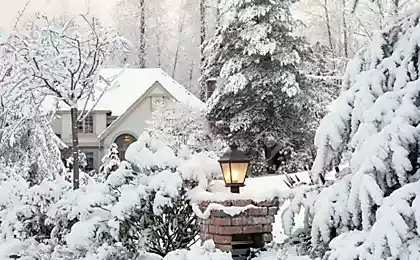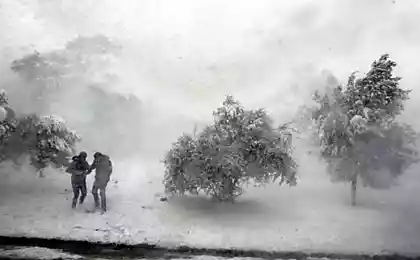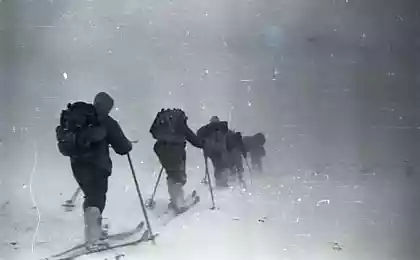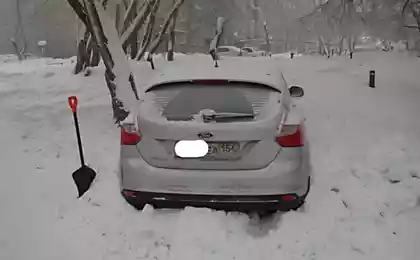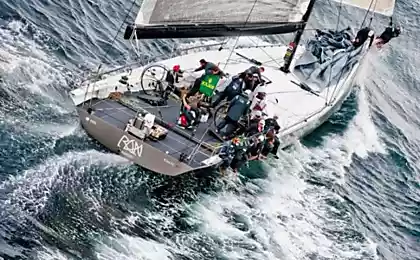545
How to fight with snow
With the arrival of real winter utilities have started hot time. Today you will learn about what different ways the utility of saving its citizens from slippery roads and snowdrifts.
5 photos + text here
1. Iceland - a country with the happiest Kommunalnik, since, despite the fact that a lot of snow drops out, clean it immediately without the use of machinery and people. To heat the pavement in Iceland use water from geothermal sources - under roads along the streets stretch network of pipes that carry the heat in homes and offices. It turns out that the thermal energy during transport are not lost in vain (as is often the case in Russia, where over a large heating mains in January blooming dandelions) - it cleans the city from unwanted snow in the most natural and environmentally-friendly way.
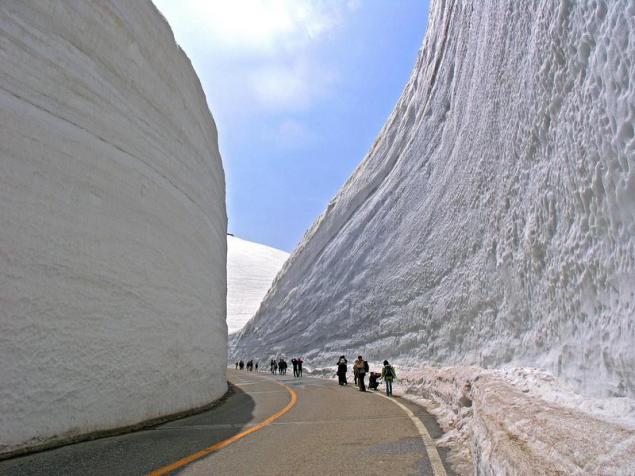
2. Finland.
In this country there is enough snow geothermal sources, and utilities have to work hard to ensure traffic safety in winter and clear the streets of snow drifts. In a particularly difficult time, when the snow falls so much that it can not remove their own, part of the duty shift on ordinary citizens who have to clear the snow on the surrounding areas of their homes. Roadway then sprinkle with salt does not, on which vehicles are rotting apples and granite, which is completely harmless to the body. Granite chippings can be used any number of times, and after using it tamped snow, special machines collect it to use again. Snow machines here differ in their haste: the roads in Finland, made clear at a speed of 70 kilometers per hour.
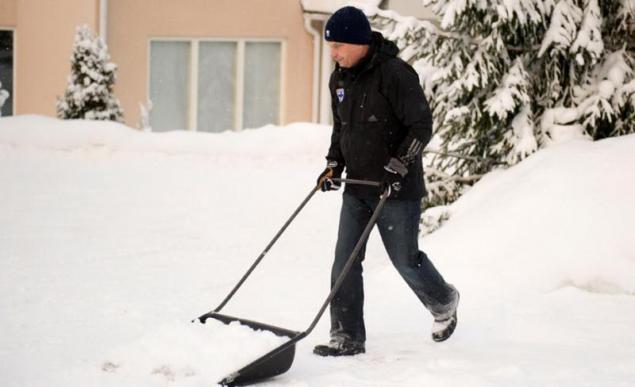
3. Japan.
In the mountainous areas of the country the snow falls in the winter well, very much: the height of a six-meter snowdrifts here no surprise. With huge amounts of snow utilities cope with the help of heavy machinery with the Boers, and Snow that snow from the roadway onto the shoulder throw. Clears the way then passed through the markup and therefore often runs turn into snow tunnels with walls incredible heights. This fantastic story very much like tourists - snow tunnels are one of the most popular tourist sites in Japan.
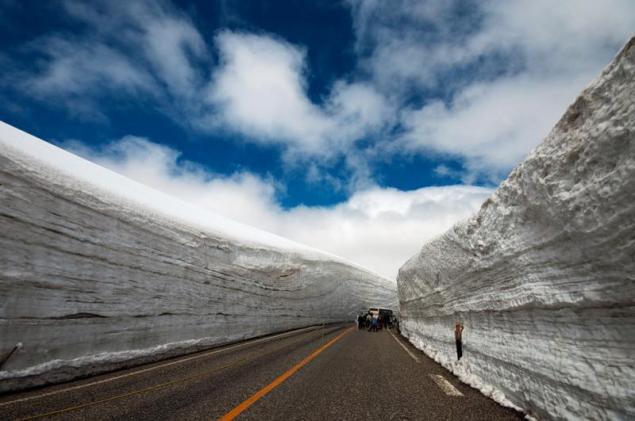
4. Germany.
Most parts of Germany snow is not enough, and it can handle multiple cleaning wipers. However, there are regions such as the Alps, where a lot of snow, and utilities have to work hard here. Part of the work on taking the citizens who are required to clear the surrounding area from their homes. They do it very diligently Indeed, in Germany there is a law that requires you to compensate for the damage to someone who has broken a leg or arm on your slippery pavement. At intersections there are boxes of sand that homeowners can use to sprinkle on sidewalks, in the spring of all this sand must be removed by special vacuum cleaner. Well, major freeways cleared away the heavy snow removal equipment.
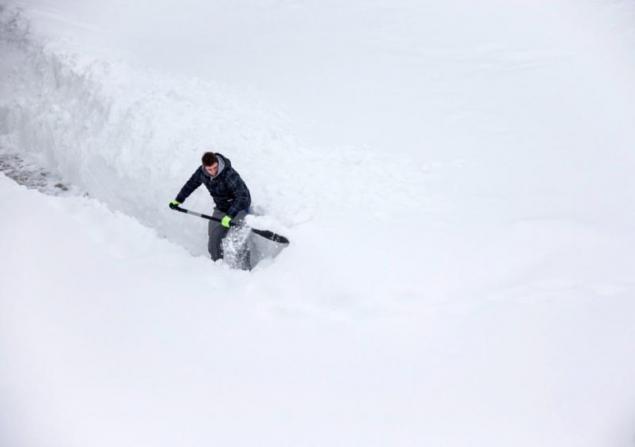
5. Russia.
In Russia, as in most of the CIS countries, ice and snow-covered roadway in addition to the hardware also eliminates sand and salt mixture, generously scattered on the road. This is one of the most wasteful ways of clearing the roads, which has a lot of minuses. By cons include environmentally sensitive, low efficiency during severe cold weather and catastrophic damage to road vehicles, which after a couple of Russian winters turn into a pile of rust. And all of this from year to year does not change, in spite of the vast reserves of granite, which you could use for a civilized way of clearing the roads.
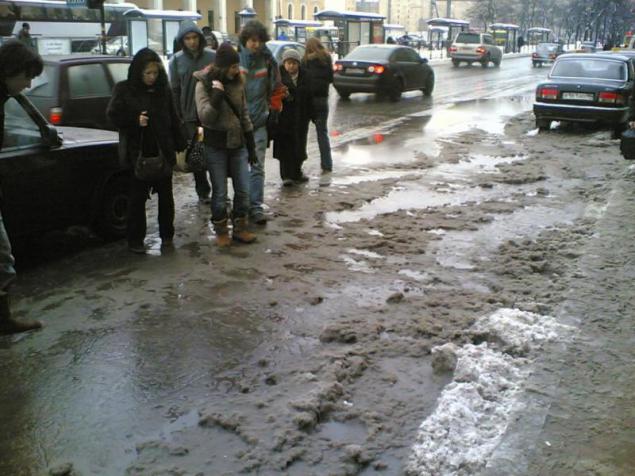
Source:
5 photos + text here
1. Iceland - a country with the happiest Kommunalnik, since, despite the fact that a lot of snow drops out, clean it immediately without the use of machinery and people. To heat the pavement in Iceland use water from geothermal sources - under roads along the streets stretch network of pipes that carry the heat in homes and offices. It turns out that the thermal energy during transport are not lost in vain (as is often the case in Russia, where over a large heating mains in January blooming dandelions) - it cleans the city from unwanted snow in the most natural and environmentally-friendly way.

2. Finland.
In this country there is enough snow geothermal sources, and utilities have to work hard to ensure traffic safety in winter and clear the streets of snow drifts. In a particularly difficult time, when the snow falls so much that it can not remove their own, part of the duty shift on ordinary citizens who have to clear the snow on the surrounding areas of their homes. Roadway then sprinkle with salt does not, on which vehicles are rotting apples and granite, which is completely harmless to the body. Granite chippings can be used any number of times, and after using it tamped snow, special machines collect it to use again. Snow machines here differ in their haste: the roads in Finland, made clear at a speed of 70 kilometers per hour.

3. Japan.
In the mountainous areas of the country the snow falls in the winter well, very much: the height of a six-meter snowdrifts here no surprise. With huge amounts of snow utilities cope with the help of heavy machinery with the Boers, and Snow that snow from the roadway onto the shoulder throw. Clears the way then passed through the markup and therefore often runs turn into snow tunnels with walls incredible heights. This fantastic story very much like tourists - snow tunnels are one of the most popular tourist sites in Japan.

4. Germany.
Most parts of Germany snow is not enough, and it can handle multiple cleaning wipers. However, there are regions such as the Alps, where a lot of snow, and utilities have to work hard here. Part of the work on taking the citizens who are required to clear the surrounding area from their homes. They do it very diligently Indeed, in Germany there is a law that requires you to compensate for the damage to someone who has broken a leg or arm on your slippery pavement. At intersections there are boxes of sand that homeowners can use to sprinkle on sidewalks, in the spring of all this sand must be removed by special vacuum cleaner. Well, major freeways cleared away the heavy snow removal equipment.

5. Russia.
In Russia, as in most of the CIS countries, ice and snow-covered roadway in addition to the hardware also eliminates sand and salt mixture, generously scattered on the road. This is one of the most wasteful ways of clearing the roads, which has a lot of minuses. By cons include environmentally sensitive, low efficiency during severe cold weather and catastrophic damage to road vehicles, which after a couple of Russian winters turn into a pile of rust. And all of this from year to year does not change, in spite of the vast reserves of granite, which you could use for a civilized way of clearing the roads.

Source:
